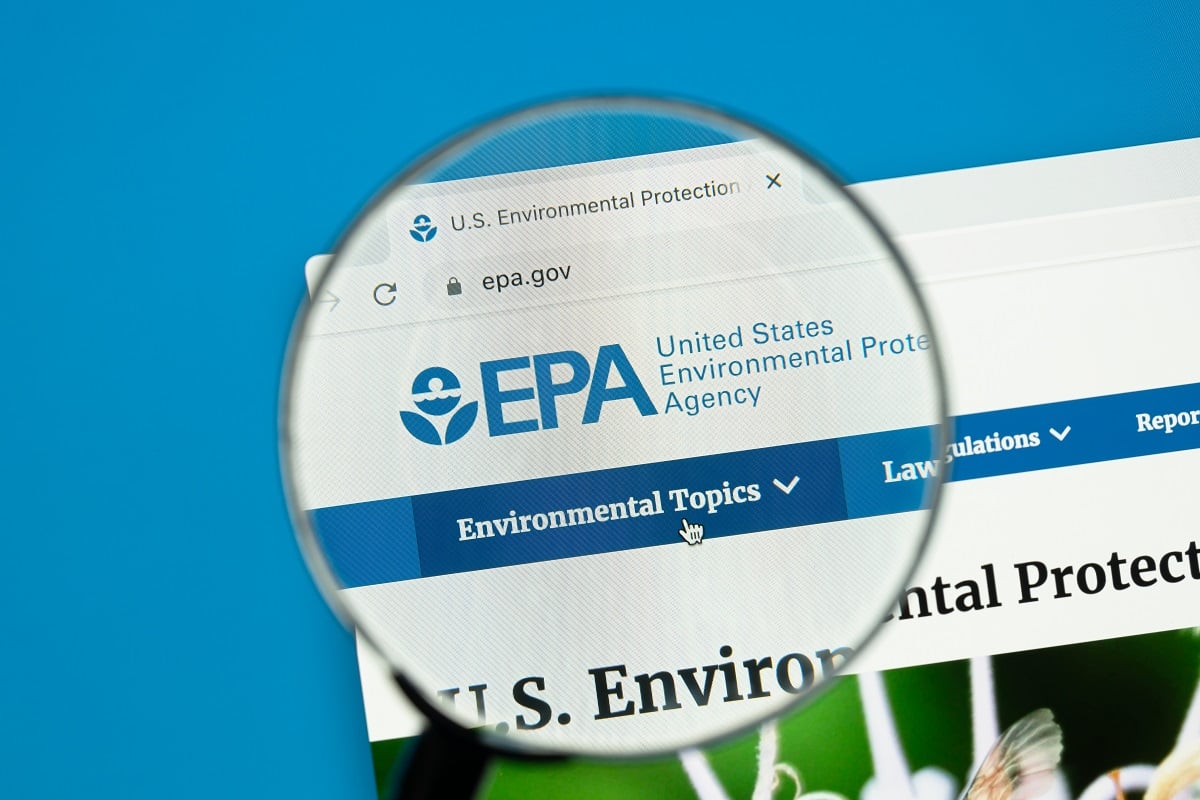
EPA Proposes Revisions to TSCA Risk Evaluation Framework for Existing Chemicals
On Tuesday, September 23, 2025, the U.S. Environmental Protection Agency (EPA) published a proposed rule to revise its procedural framework for conducting risk evaluations for chemicals already in commerce under the Toxic Substances Control Act (TSCA) (Proposed Framework Rule). The purpose of risk evaluation is to determine whether an existing chemical substance presents an unreasonable risk to health or the environment, under the conditions of use. Risk evaluation is the second step in EPA’s existing chemical process under TSCA, before EPA develops and proposes a rule to manage any such unreasonable risks.
North Carolina Court Upholds Attorney General’s Common Law Authority to Pursue PFAS Suit
On August 7, 2025, the North Carolina Business Court denied a motion to dismiss in North Carolina v. E.I. Du Pont de Nemours, affirming the Attorney General’s authority to pursue environmental and fraud claims related to PFAS and GenX discharges. The court held that the Attorney General’s common law authority to protect state natural resources remains intact despite the North Carolina General Assembly’s prior repeal of a statute that had explicitly authorized such enforcement. As PFAS regulation continues to expand across the country, this decision, if followed, would signal that companies involved in PFAS discharge may face liability under common law theories—even in jurisdictions lacking PFAS statutes or where statutory enforcement authority has been rolled back.
EPA Updates Clean Air Act Standards Applicable to Small Waste Incinerators
On June 30, 2025, the U.S. Environmental Protection Agency (EPA) finalized updates to its New Source Performance Standards (NSPS) and Emission Guidelines for Other Solid Waste Incineration (OSWI) units under the Clean Air Act (CAA). These units — combustion systems that incinerate solid waste from commercial or institutional sources not otherwise regulated under specific incinerator categories — include very small municipal waste combustors and institutional incinerators. The final rule includes applicability-related and definitional changes expanding the class of incinerators subject to NSPS, revises the OSWI subcategories and tightens emission limits for key pollutants. It also adopts changes to startup, shutdown, and malfunction (SSM), and expands testing, monitoring, reporting, and recordkeeping requirements that will affect both existing and new OSWI units.
California Proposes Expanding Safer Consumer Products Regulations Under SB 502
On June 6, 2025, the California Department of Toxic Substances Control (DTSC) issued a Notice of Proposed Action to amend the Safer Consumer Products (SCP) Regulations. These proposed amendments implement Senate Bill (SB) 502 and expand public access to DTSC’s regulatory process. Among other changes, the proposal creates a pathway for public petitions to result directly in regulatory action, bypassing the traditional Alternatives Analysis process.
U.S. Environmental Protection Agency Extends PFAS Reporting Rule Submission Period
On Monday, May 12, 2025, the U.S. Environmental Protection Agency (EPA) announced an interim final rule to extend the reporting period for the EPA’s rule requiring data submission on per- and polyfluoroalkylated substances (PFAS Reporting Rule).

U.S. Environmental Protection Agency Announces New PFAS Action Plan
On April 28, 2025, U.S. Environmental Protection Agency (EPA) Administrator Lee Zeldin announced the Agency’s plan to address per- and polyfluoroalkyl substances (PFAS) during the second Trump Administration. PFAS are manmade chemicals—of which there are thousands—commonly found in textiles, cookware, packaging, plastics, and firefighting foams. These “forever chemicals” are persistent in the environment and human body, as they do not break down and can accumulate over long periods of time. EPA’s outlined action plan calls upon its investigatory, regulatory, and enforcement powers under various statutes, including the Toxic Substances Control Act (TSCA), Clean Water Act (CWA), Safe Drinking Water Act (SDWA), Resource Conservation and Recovery Act (RCRA), and Comprehensive Environmental Response, Compensation, and Liability Act (CERCLA).

EPA Announces List of Manufacturers Subject to Fees for Chemical Substances Under the Toxic Substances Control Act
On December 31, 2024, the U.S. Environmental Protection Agency (EPA or the Agency) published a determination in the Federal Register announcing the availability of preliminary lists of manufacturers of five chemical substances designated as “High-Priority Substances” under Section 6 of the Toxic Substances Control Act (TSCA). The manufacturers — including importers — of these chemical substances will be subject to fees and reporting requirements under TSCA’s implementing regulations.
U.S. Environmental Protection Agency Amends New Chemicals Review Process Under Toxic Substances Control Act
On December 18, 2024, the U.S. Environmental Protection Agency (EPA) published a final rule modifying regulations governing the new chemicals review process under the Toxic Substances Control Act (TSCA) (Final Rule). As amended by the 2016 Lautenberg Amendments, TSCA Section 5 establishes prior notice requirements before a new chemical can be manufactured or an existing chemical can be used in new ways.[1] The Final Rule updates EPA practices guiding its review of exemptions and safety determinations, as well as a submitter’s request to start manufacturing, and aligns the implementing regulations with the 2016 amendments.

EPA Chemical Safety Rule Raises Questions About Authority
For what appears to be the first time in its history, the U.S. Environmental Protection Agency has recently finalized a rule that requires board-level involvement in an EPA-administered program. Specifically, the EPA’s recent amendments to the Risk Management Program (RMP) require certain chemical plants and refineries to submit third-party audit reports on process safety directly to the audit committee of the company’s board of directors. In short, the EPA is seeking to get involved in corporate governance by dictating what information management must provide to the audit committee and when — regardless of management input. In this article, first published in Law360 on April 25, 2024, Sidley lawyers Justin Savage, Ike Adams, and Aaron Flyer dissect the recent RMP amendments, which are a follow up to the EPA’s Safer Communities by Chemical Accident Prevention rule, finalized March 11, 2024. The authors explore the EPA’s authority to regulate corporate governance requirements, the practical value in doing so, and the potential fallout for companies in terms of corporate governance. If the new RMP rule survives judicial review, it may embolden the EPA to issue other board reporting obligations in any number of its regulatory programs governing corporate operations.
Fifth Circuit Limits EPA’s Attempts to Regulate PFAS Under Toxic Substances Control Act in Inhance Technologies v. EPA
On March 21, 2024, the U.S. Court of Appeals for the Fifth Circuit vacated two U.S. Environmental Protection Agency (EPA) orders under Section 5 of the Toxic Substances Control Act (TSCA), holding that EPA had exceeded its statutory authority when it issued the orders in an attempt to regulate the manufacture of per- and polyfluorinated substances (PFAS) by petitioner Inhance Technologies, LLC (Inhance). The Fifth Circuit’s decision comes after EPA’s Office of Enforcement and Compliance Assurance announced its National Enforcement and Compliance Initiatives for Fiscal Years 2024 – 2027, which involve increased emphasis on addressing PFAS exposure and contamination through enforcement actions and potential additional regulations.

